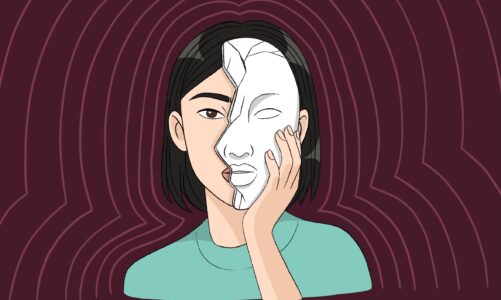Content Warning: please note that this article will reference and talk about potentially triggering topics such as George Floyd and Breonna Taylor’s deaths.
Being inactive on social media during 2020 can mean two very different things.
There’s no denying that this year has been very taxing for everyone – black people and people of color, especially. Ever since George Floyd was brutally murdered by a police officer in May, our social media feeds have been flooded with all sorts of information – Black Lives Matter and other movements that have come to international recognition during quarantine. At this point, there are so many things going on that it can be extremely mentally taxing. There comes a point where it’s important to log off and take a break from activism.
However, performative activism, which is harmful and disrespectful, can look very similar. Where is the line? How do we tell the difference between people retweeting petitions occasionally for the “aesthetic” and people who are just on hiatus for their mental health? There’s a few things you need to keep in mind when you’re scrolling through your feed.
Before you even make a judgement, be respectful and understanding.
There’s a lot of upsides to social media. Lots of information can be spread and processed at once, and this brings light to issues that may have been drowned in mainstream media. However, the fast-paced action also has its negatives; cancel culture is one of them, where people are too fast to jump on a bandwagon in destroying someone’s reputation. While this article isn’t judging the authenticity of cancel culture, one thing that is undeniable is that social media can quickly and easily end someone’s reputation. The fear of being destroyed online, coupled with the stress that comes with bad events after bad events, can easily harm someone’s mental health and hurt them emotionally. Remember to respect people’s boundaries, even across the expanse of the internet. Even though it’s important we call out disrespectful or insensitive behavior, it’s very harmful to accidentally attack the wrong person and hurt them deeply.

Social media is a place for multiple interests to coincide. However, it’s important to be able to put those aside when it’s necessary.
For many people, social media is a sort of safe space where they can discuss their interests freely with people like them. It is also often a place where people can be themselves in ways that may not be possible in reality. While this is a positive attribute to social media, too much freedom can cause people to detach from the struggles of others and essentially ignore the news. Many of those on social media, however, don’t have the ability or the privilege to distances themselves from the heavy and triggering events that are constantly being talked about on social media, so it’s important that people spread information and take care of those who are impacted. This means that when something important happens, people need to take just some time out of their day to address the more pressing of issues – the injustice, cruelty, or pain that we see on our feeds. People who repost just one link and then continue to ignore the situation at hand, for example, would be prime examples of performative activism.
There are a lot of thin, barely visible lines between performative activism and taking a break, or ignoring important events and trying to take your mind off triggering events. These lines can be incredibly uncomfortable to face, too. What are they? Obviously, these can be learned over time, but the most important one is to know where people are coming from on social media.
A rule of thumb: if you have privilege, use it.
It goes without saying that a lot of issues that have happened this year have been especially hard on minority groups. Although it may be uncomfortable to digest, the fact is that all non-white groups have been subject to and are constantly subjected to the effects of systemic racism in the United States. When major events happen, it’s important to listen to the words of the targeted group, respect their boundaries, and help them achieve the goals they’re reaching for. For example, upon hearing the results of the case for Breonna Taylor’s death, non-Black people were obligated to be online to spread information. Those who weren’t impacted had a responsibility to be as active as possible to make sure social media wasn’t ignoring the event.
The usage of privilege is incredibly important to how we spread information and treat people on social media. It’s imperative to be kind to those who are suffering but to be firm with the level of actual activism we need from people who are more fortunate. That’s the main difference between being inactive because of an unwillingness to spend some time spreading information and simply being unable to cope with everything happening. For those who truly need a break, they should be allowed and encouraged to take time for themselves to cope. Keeping this in mind will help ensure that the right people are held in check and that activism is practiced regularly.




